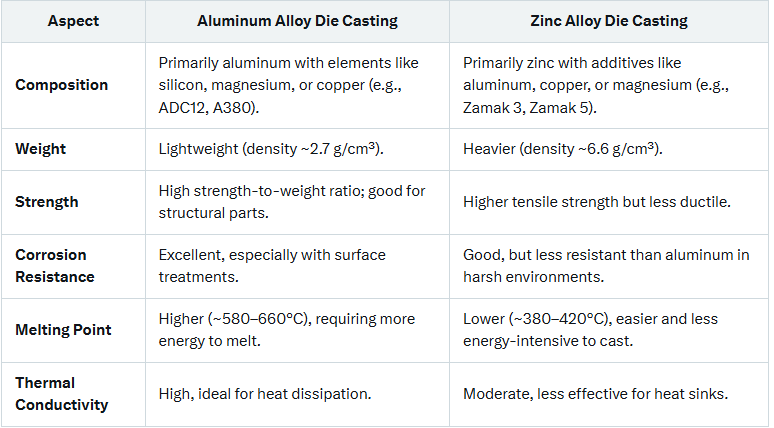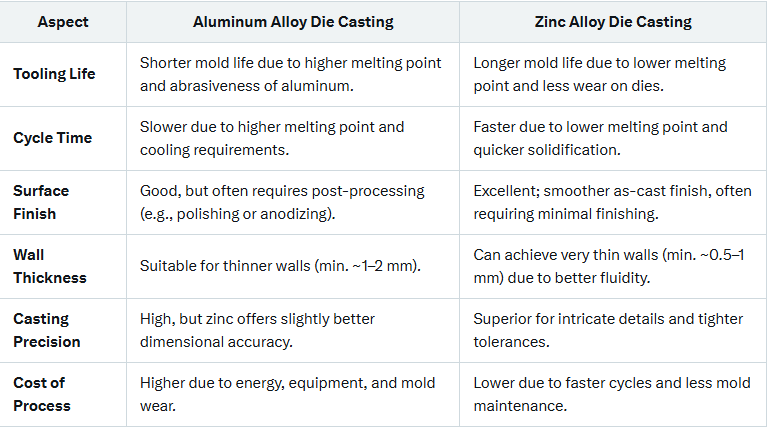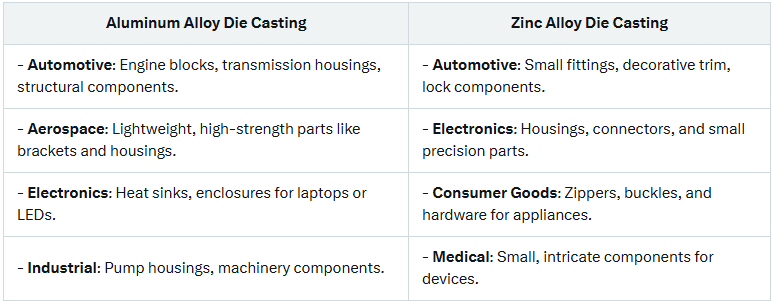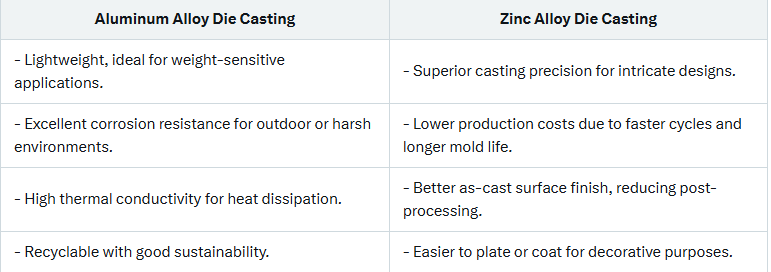Shenzhen Alu Rapid Prototype Precision Co., Ltd.
Industry News
- Home
- News
- What is the difference between aluminum alloy die casting and zinc alloy die casting?
Aluminum alloy die casting and zinc alloy die casting are both widely used manufacturing processes for producing precise, high-volume metal parts, but they differ significantly in terms of material properties, process characteristics, applications, and performance. Below is a concise comparison of the two, relevant to the capabilities of a company like Shenzhen Alu Rapid Prototype Precision Co., Ltd., which likely offers die casting services.
1.Material Properties

2. Process Characteristics

3. Applications

4. Advantages

5. Limitations

6. Cost Considerations
Aluminum: Higher upfront costs (molds, energy) but preferred for larger, lightweight, or heat-dissipating parts. Cost-effective for high-volume production where durability and weight are critical.
Zinc: Lower production costs and longer mold life make it more economical for smaller, intricate parts or decorative components with high cosmetic requirements.
Summary:
Choose Aluminum Alloy Die Casting for lightweight, corrosion-resistant, and heat-dissipating parts, ideal for structural or larger components in automotive, aerospace, or electronics.
Choose Zinc Alloy Die Casting for intricate, small, or decorative parts with tight tolerances and excellent surface finish, suitable for electronics, hardware, or consumer goods.
